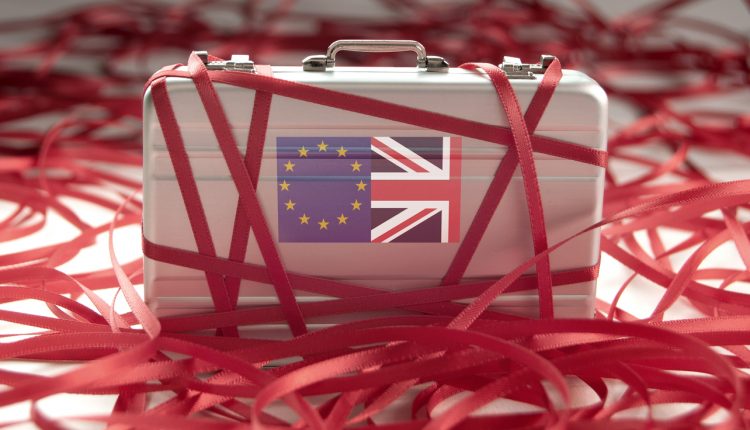How Will the Paralegal Profession be Affected by Brexit?
One of the biggest legal upheavals in modern history, the impact of Brexit is going to have a knock-on effect for many professions. But is it anything for paralegals to worry about?
While the legal world grapples with the COVID-19 pandemic, the full impact of Brexit has yet to be fully assessed. Amanda Hamilton, CEO of National Association of Licenced Paralegals (NALP), offers Lawyer Monthly her take on the likely outcomes for the paralegal profession.
There’s no doubt that Brexit will have a knock-on effect for many different professions. I have friends and acquaintances involved in architectural design, architectural photography and construction and who have indicated that their business is already suffering. Many of their clients are EU nationals and they’re holding back work to see what will happen as a result of the UK leaving the EU. They may have a long time to wait since changes won’t happen immediately. Clearly, this will seriously endanger the survival of many such businesses.
Will there be a similar effect within the legal profession? That’s yet to be seen. Since we have a unique legal system in England and Wales, it’s probable that on a day-to-day level, Lawyers (and I include Paralegal Lawyers) will not be affected in the same way as other professionals mentioned above, since generally, they are dealing with matters relating to English Common Law. Of course, some law firms are multi-national and may have offices in EU locations and therefore, in such instances, there will obviously be changes to their daily operations.
As for the Paralegal Profession, it is likely that it will be business as usual, although in respect of EU nationals requiring assistance on immigration matters, these types of cases may increase. We have no idea at this particular moment in time what changes will be made and how soon they will be actioned.
Since Paralegal Practitioners tend to take up the slack left by the virtual eradication of legal aid, and therefore, tend to handle the lower end claims and matters that solicitors are not able, or indeed not financially viable to deal with, it is more likely that they will not be affected.
At this stage we can only conjecture what may happen and since there will be EU nationals based in the UK who may be the recipients of negative attitudes and actions towards them as time passes, we could see an increase in the number of cases relating to racist behaviour, assaults and criminal activity, all of which may impact on the paralegal sector, requiring more qualified paralegals to step up to the plate to assist such individuals.
Of course, for those paralegals working in law firms which may have connections with the EU, there could be more of an impact. If such firms are going to be affected, then it is likely that the first victims of any economic consequences may well be paralegal jobs.
The difficulty that we find ourselves in within the legal sector is the same as everyone else in most sectors: we don’t actually know how Brexit will impact on us and how quickly or slowly the changes, if there are any, may occur.
Since Paralegal Practitioners tend to take up the slack left by the virtual eradication of legal aid […] it is more likely that they will not be affected.
Within the legal process itself and the court system in England and Wales, we are self-contained in that we have our own appeal hierarchy which will not change. As we currently stand, the European Court decisions still bind all British courts on matters relating to European Community Law.
However, a statute first proposed as The Great Repeal Bill in 2016, was given Royal Assent in June 2018 and is known as the ‘European Union (Withdrawal) Act 2018’. The statute will do several things: firstly, it will repeal the European Communities Act 1972 which provided legal authority for EU law to have effect as national law in the UK. Secondly, it brings all EU law onto the UK books meaning that all EU law implemented over the last 40 years or so while the UK was an EU member will continue to apply after Brexit, making it ‘EU retained law’.
Why Keep Laws Made by the EU?
EU law has covered such areas as worker’s rights, environmental regulations and the regulation of financial services. These have already been integrated into our legal system and so to withdraw them would cause uncertainty and confusion.
It is becoming apparent that many areas of our legal system and daily lives have been positively affected by being a part of the EU. Our working lives have become better through human rights legislation and employment rights and we cannot ignore the input that the EU has provided over this long period of time.
What will be telling, is where we go from here. The question we need to ask is: Will we completely ignore elements of legislation coming from and implemented by the EU and do our own thing, or will we be guided and look to the EU and implement similar legislation but in our own way?




